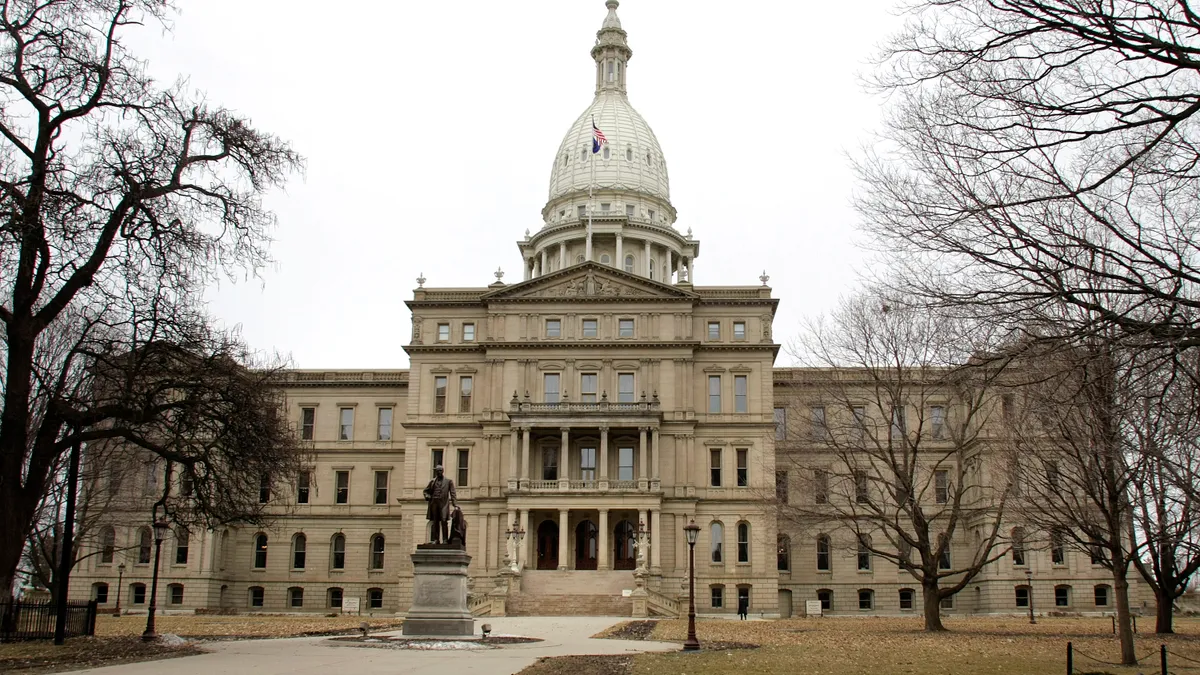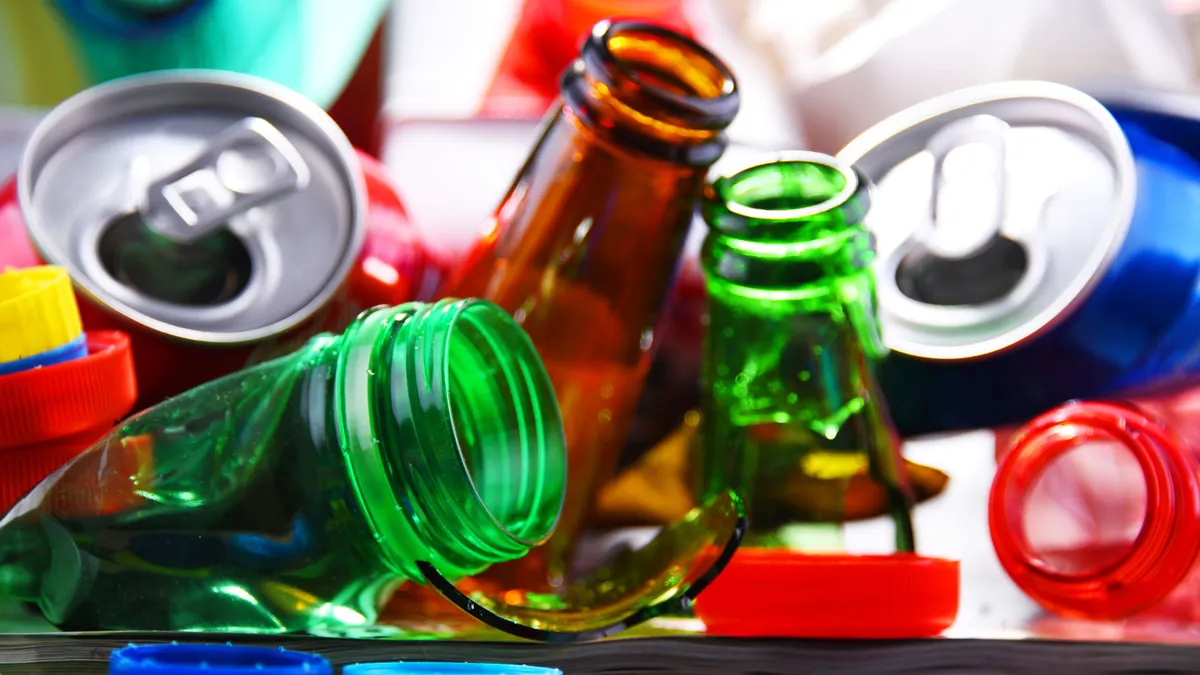Michigan lawmakers have again introduced a bill to expand the state bottle bill to include more types of containers.
The new legislation would add a 10-cent deposit for all non-carbonated drinks except milk. The state’s bottle bill currently has a 10-cent deposit for items such as soft drinks, beer and carbonated water, but it doesn’t include common containers like plastic water bottles, or wine and spirits bottles.
State Sen. Sean McCann and Rep. Christine Morse announced the reintroduction of the bills, SB453 and HB4904, in late June. The bills are expected to be formally introduced in the House and Senate sometime after lawmakers return from recess on July 18, according to the House Clerk’s Office.
The legislation would introduce what the lawmakers describe as “universal redemption,” where residents would be able to redeem containers at any retailer, not just the location where they originally bought the container. The provision was included in both the 2019 and 2021 versions of the bill.
The bill would also create a bottle-handling fund to reimburse distributors and dealers on a per-bottle-basis. Michigan's bottle bill does not have a handling fee because it does not have redemption centers. Currently, 25% of unredeemed deposit funds in Michigan go back to retailers, while the rest goes into a cleanup and redevelopment trust fund.
The bill calls for 25% of trust-fund revenues to go toward recycling initiatives, and another 25% to go to municipalities that have achieved a 45% recycling rate. Another 25% would go to a range of community pollution prevention efforts addressing plastic waste and other contamination.
The bill also calls for providing $25 million each year to the state’s RenewMI program, run by the Department of Environment, Great Lakes, and Energy, to remediate and redevelop contaminated sites throughout the state such as old mines or areas with contaminated groundwater.
It also calls for making between $1 million and $4 million funding available for audits and fraud investigations depending on the state’s bottle return rate.
Passing a bottle bill update can be a challenge in any state, but some stakeholders think Michigan Democrats’ control of both the House and Senate, along with a Democratic governor, could help move more environmental bills forward. Under this trifecta, the state already passed a major bill package updating the state’s solid waste plan to focus on recycling and reuse strategies as its “primary objective,” an effort that was several years in the making.
McCann has introduced versions of the bottle bill expansions in past legislative sessions, and the 2023 version is similar to the bill introduced in 2021, which did not gain traction. McCann told WKZO he’ll plan to continue introducing the bill until it passes.
Past bills have faced criticism from retailers that say the current process to redeem containers is already expensive and messy, and an expansion could make it worse.
Another hurdle is building consensus among lawmakers: Any update to the state’s bottle bill must also be approved by a three-fourths supermajority vote in the legislature because the original bottle bill passed as a ballot initiative.
“We don't have any illusions this is an easy lift … you gotta have a lot of stakeholders willing to accept some change,” McCann said in the radio interview. “I want to make sure the possibility is always on the table to reshape this.”
McCann and Morse also say it’s past time for an update because the state’s return rate has decreased in recent years, due in part to a temporary ban on returning containers during the beginning of the COVID-19 pandemic in 2020. The return rate in 2021 was 75.4%, compared with 73% in 2020 and 88.7% in 2019 according to the Department of Environment, Great Lakes, and Energy.
Michigan is still “one of the leaders in our nation when it comes to bottle returns,” and further updates would help make it stronger, Morse said in a statement.
In the meantime, Michigan is eyeing smaller improvements to the bottle bill through the state budget, which Gov. Gretchen Whitmer is expected to sign soon.
The budget includes a one-time infusion of $1 million to an unnamed company to install reverse vending machines. It calls for another $1 million to fund public education programs “to increase this state’s beverage container deposit redemption rate and to support investments in collection and processing of beverage containers.” It also calls for $8 million in grants to licensed distributors for deposit costs.
The budget directs the education money to an unnamed company “incorporated in 1968” that processes beverage containers. Michigan-based Schupan, which describes itself as the largest independent processor of used beverage containers in the U.S., fits that description.



















